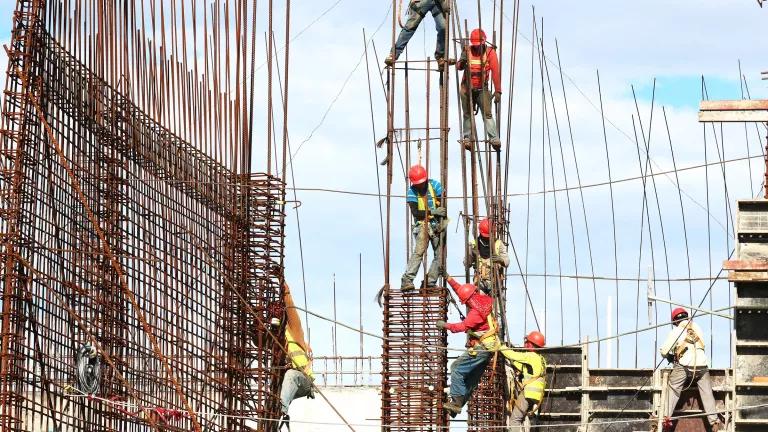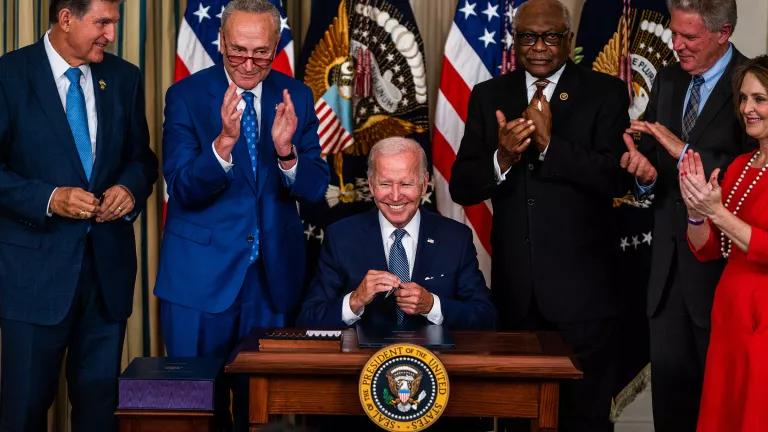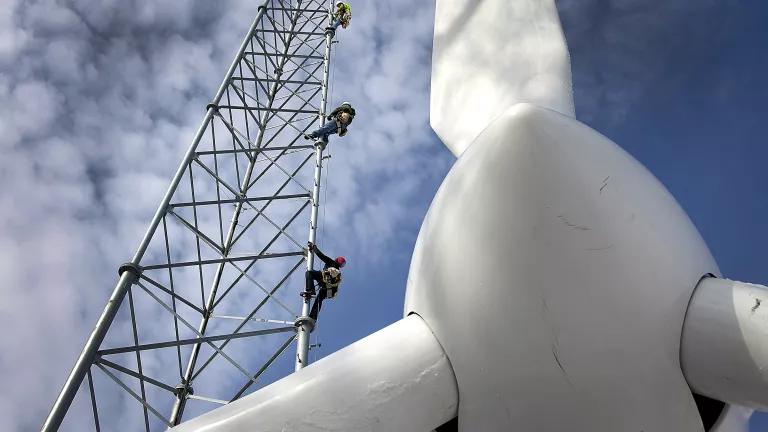Senate Highway Bill Fails to Meet the Moment
The Senate Environmental and Public Works Committee passed the Surface Transportation Reauthorization today, taking a step forward toward a comprehensive infrastructure package. However, this is the first step in a marathon of committee markups and floor action, and the bill needs to be strengthened to meet the moment.

Maria Oswalt/Unsplash CC
The Senate Environmental and Public Works Committee passed the Surface Transportation Reauthorization today, taking a step forward toward a comprehensive infrastructure package. However, this is the first step in a marathon of committee markups and floor action, and the bill needs to be strengthened to meet the moment.
As our nation strives to recover from a public health pandemic, challenges of climate change, racial injustice and the need for economic recovery call for swift action.
Committee leaders championed the bi-partisanship nature of the bill and the largest surface transportation reauthorization package in history, establishing a new baseline of funding for the U.S. Department of Transportation highways, roads, and bridges. However, we must remember that building more highways pollutes more communities and harms our environment. So new investments must guided by policy that shores up our existing roads (“fix it first”) or replacing or designing them (“fix it right”) if they are part of the legacy of damage by highways rammed through neighborhoods.
The bill also fails to include the performance measures in previous bills that would measure tail-pipe pollution impacting the public health of communities and weaken the environmental review process by imposing a one-size-fits-all approach for the federal environmental review of transportation projects, regardless of size and complexity, providing exclusions for natural gas, oil and wastewater pipelines—a clear giveaway to the fossil fuel industry.
If bi-partisanship within the Beltway means Congressional leaders funding more of the same that harm communities and the environment, then it may be time for our public officials to consider other approaches to addressing the crisis that President Biden has rightly said we face as a nation.
The simple truth is that Congress should tackle the issues of this moment withlegislation that will help fix them. Leaders should focus on the huge backlog in road and bridge repairs, some long-overdue, across America, while correcting the inequities built into our highway system. Funding clean transportation investments, electric vehicle infrastructure, reconnecting communities and addressing freight pollution are important and urgently needed parts of an ambitious plan to tackle climate change and community resilience.
Since a highway bill on its own cannot tackle our public health, climate, and equity crisis, we urge Congressional leaders to advance a more comprehensive bill to the Senate floor that meets the moment of this time.




